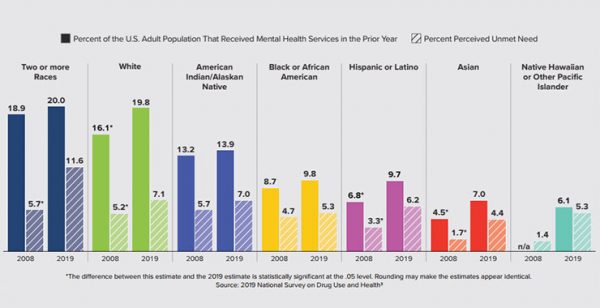Psychology is a science! Dr. Martha Lally explains misconceptions about psychology and when to receive help
April 30, 2021
According to the American Psychological Association, Psychology is the scientific study of the mind and behavior.
CLC professor Dr. Martha Lally, is an expert in the field of psychology.
Psychology is a field that’s invaluable to society but is often misunderstood in a multitude of ways.
“Psychology is a science!” says Dr. Lally, which is often a misunderstood fact.
She asks us to understand that the field of psychology is ever-evolving, and old theories that may appear in movies or popular culture are outdated or, at times, not used at all.
Psychology employs the scientific research method, empirically gathering evidence to support or disprove a hypothesis relevant to that specific data point.
Additionally, the misconceptions surrounding psychological counseling and therapy that may deter people from receiving care are not as valid as one may assume.
Misconceptions, including the idea that one cannot improve their mental health, that counseling doesn’t work and is for only “seriously mentally ill” individuals, that it takes forever to work or is too expensive, are all ideas Dr. Lally says are not necessarily true.
In fact, there are “very effective, brief methods that can make a significant difference,” Dr. Lally clarifies.
Psychologists and mental health professionals know that there are programs that are 6-8 weeks in length that can change the course of an individual’s mental health for the better.
Insurance is aware of that fact as well and will often cover those expenses.
Dr. Lally also discusses the effect and involvement of stigma in receiving mental health treatment.
Graphic Courtesy of the American Psychological Association
There is a marked decrease in stigma across the board, as demonstrated by the graphic provided by Dr. Lally, indicating a much more accepting point of view towards therapy in the measured populations.
Covid-19, she notes, has also caused individuals to seek out mental health services at higher rates.
The presence of stigma, Dr. Lally discusses, is often present where education on counseling is incorrect.
False information causing incorrect education is often brought about by media consumption, where mental health and mental health treatment is represented poorly.
Dr. Lally is concerned about popular media’s portrayals of mental illness as negative, violent, and “out-of-control.”
In addition to misinformation, other stigmas can stem from the belief that mental illness is simply a weakness that those affected should overcome through will.
Mental illness is not a character flaw, and there is no shame in receiving help with it.
Receiving mental health services is appropriate in a variety of situations, Dr. Lally explains.
If you feel distressed, experience a physical or emotional change, or undergo a change in function, it is appropriate to seek mental health care.
Examples Lally provides include losing a love for activities, becoming withdrawn from friends and social groups, and mental health interference with your life, school, work, and relationships.
In the context of undergoing trauma, characterized by severely distressing events such as bereavement, assault, or even covid-19 hospitalization, Dr. Lally recommends talking to someone.
Beyond trauma, internalizing your locus of control is immensely helpful for counteracting the effects of events that remove power from an individual.
An internal locus of control, Dr. Lally explains, is the understanding or belief of an individual that they can impact the direction of their life, rather than throwing up their hands with the assumption that others are all against them.
This internal locus of control must also be paired with an awareness of things that are not within our control.
Dr. Lally also explains that everyone undergoes stressful periods (non-traumatic), which are normal.
Proactive ways to maintain mental health and cope with life stresses are relatively simple, and Dr. Lally provides two points of emphasis.
Number one, a substantial contributing factor to the onset of mental illness is a lack of sleep.
Sleeping helps with anxiety, coping with stress, concentrating, and in general “dealing with life.”
The inverse is true as well.
Dr. Lally confirms that a lack of sleep is correlated with the aforementioned adverse effects, causing increases in anxiety, lessened concentration, and lower ability to cope with stress.
Number two, limitation of social media consumption
While social media “can be wonderful for interpersonal communication,” Dr. Lally says it is also correlated with poor mental health.
The opportunity to compare oneself to the content posted on social media can cause negative self-perception.
Dr. Lally also provides insight for us to know when social media use degenerates from an opportunity to connect into a negative influence on our mental health.
If it begins to influence your mood and feelings, or you are contributing too much of your time and attention to social media, it’s time to ease your usage.
Limitation of social media usage is a habit that must be formed using conscious effort.
Dr. Lally recommends practicing daily, rewarding yourself for achieving small goals, and enacting the change during a busy part of your life, such as attending classes or volunteering to make a significant change in social media use and improve your well-being.







